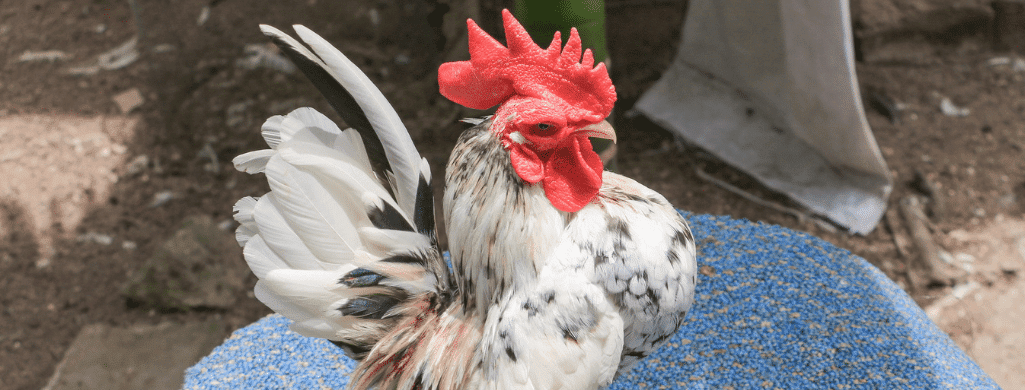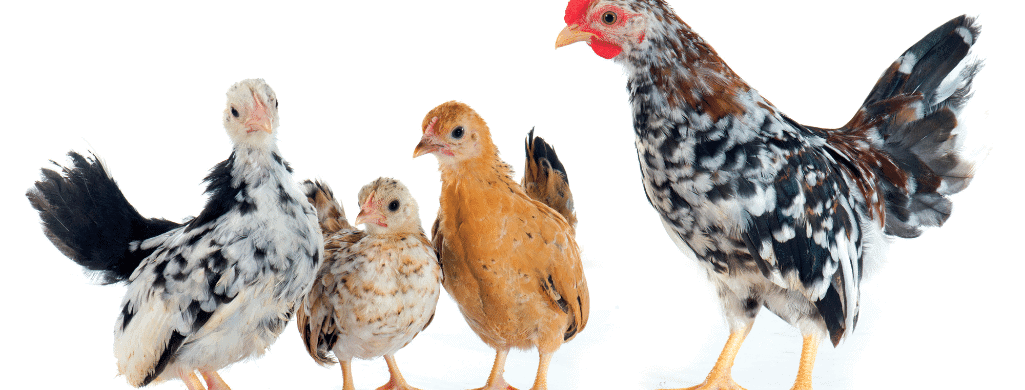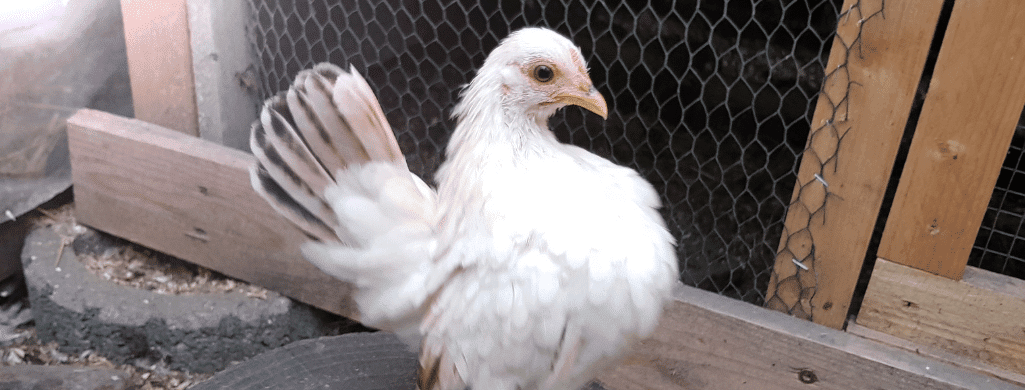Serama chickens are a small, popular chicken breed.
Once you add these delightful birds to your flock, will the hens add more Serama chicks?
When they do, will the Serama chickens go broody?
Serama hens tend to go broody so that they will incubate their eggs. If you let your hens continue this behavior, they make great mothers and will help grow your flock size.
Keep reading to learn the signs of a broody hen and tips for encouraging broody behavior.

Table of Contents
ToggleHow to Tell If a Serama Hen Is Broody
Serama hens are a broody bunch. For the most part, if you leave them with their eggs, more of them will go broody than other breeds of chicken.
However, individual hens have different personalities and tendencies.
Serama hens are good layers when they are tiny, averaging four to five eggs per week.
If you’re hoping for your tiny hens to brood over their eggs and give you some baby chicks, here are some signs to watch for:
Time Spent in Nesting Box
Compared to normal, broody hens spend a lot more time in the nesting box. Regularly, a hen will lay an egg in only 20 to 30 minutes.
A broody hen will spend virtually all day and night in her nesting box.
She will leave only to eat, drink, and go to the bathroom. Broody hens will stop eating and drinking enough because they are too focused on keeping their Serama eggs warm.
Her time in the nesting box will also be for a different purpose. Instead of laying a couple of eggs a week, she’ll stop laying eggs once she has a full clutch.
Her energy use then switches from egg production to egg protection.
Aggressive Behavior
Once a hen has gone broody, she does not want to leave her nest of eggs. Your normally docile and friendly hen will start exhibiting aggressive behavior when she goes broody.
Trying to move her will result in puffy feathers, screeching, and pecking at your hands. She’ll also flatten her back, stretching out to cover her eggs more.
In addition to screeching when you move her, she’ll make low clucking sounds to warn you to back off before you even attempt to move her or her eggs.

Protecting Eggs
Broody chickens’ aggressive behavior stems from a desire to protect their eggs. If they’re attacking you, it’s because they view you as a threat to the safety of their future chicks.
However, there are also less aggressive ways they will show they are protecting their eggs.
If you put an egg next to her, she will use her beak to roll and tuck it underneath herself.
She’ll also cluck at it, like a mother talking to her baby.
Incubating eggs requires heat and the right humidity, and brooding hens intrinsically understand this.
They will pluck out their own breast feathers and scatter them around. The exposed skin is better for transferring heat to the eggs. It also helps achieve the right humidity levels.
How to Encourage Broodiness In Serama Chickens
Even though Seramas are a broody breed, not all individual hens have a tendency to go broody. Luckily, there are a few different things to encourage them to go broody.
Give Her Fake Eggs
Hens will typically become broody after they have collected enough eggs. However, you don’t have to wait for her to lay enough eggs.
Instead, put dummy eggs in her nesting box to trick her into thinking she has more.
Dummy egg options include wooden eggs, which are available at many farm stores, and golf balls. Hens may have a preference for one type of dummy egg over another.
If you don’t want to buy dummy eggs, another option is to use eggs from another hen.
When you collect your eggs in the morning, add a few of them to the growing clutch of the hen you want to go broody.

Change Her Environment
A hen must feel like she is in a comfortable, safe environment to incubate eggs and raise chicks. To encourage her to go broody, make necessary changes to her environment.
First, move her to a calm, quiet area. Other hens and roosters may be viewed as a threat. Dark areas are also preferable because they feel safer.
Hang cloth over the nesting box to create a darker area.
Once you have a calm, dark area, confine her to the area. To increase her comfort, add fresh herbs to her nesting box.
Lavender and chamomile are calming herbs, and they help calm chickens as well.
Have the Right Rooster Ratio
If no rooster exists in your flock, your hens’ eggs are not fertilized. Even if a hen goes broody, there is no chance for these eggs to turn into chicks.
Sometimes hens go broody even without a rooster around.
However, they are way more likely to go broody if there is a rooster around them. It is very important to have the right ratio of roosters to hens, though.
Too many roosters will lead to fighting over hens, while too few roosters will decrease the ratio of fertilized eggs. Ideally, keep 1 rooster for every 5 to 10 hens.
Helping Serama Hens Incubate Eggs
When a Serama hen goes broody, remember how small she is. Seramas and other bantam breeds can only cover a few eggs because of their small bodies.
On the flip side, eggs from bantam breeds are too small and fragile to be incubated by standard sizes of chickens.
Once you have a solid broody hen, she will do all the work of incubating the eggs. However, there are ways to help her out.
Broody hens rarely leave the nest, so they don’t eat and drink as much as they should.
Make sure she has close access to food and clean water. Add supplemental protein and calcium, either through treats or chicken scraps.
Ground eggshells are a great source of calcium.
Incubation takes approximately three weeks. Serama eggs usually hatch after 19 or 20 days instead of 21 days for larger breeds.
Let your broody hen take care of her eggs for this short amount of time, and you will soon have a bundle of baby chicks.
Read More: Do Serama Chickens Handle Winter Well?
How useful was this post?
Click on a star to rate it!
We are sorry that this post was not useful for you!
Let us improve this post!
Tell us how we can improve this post?
